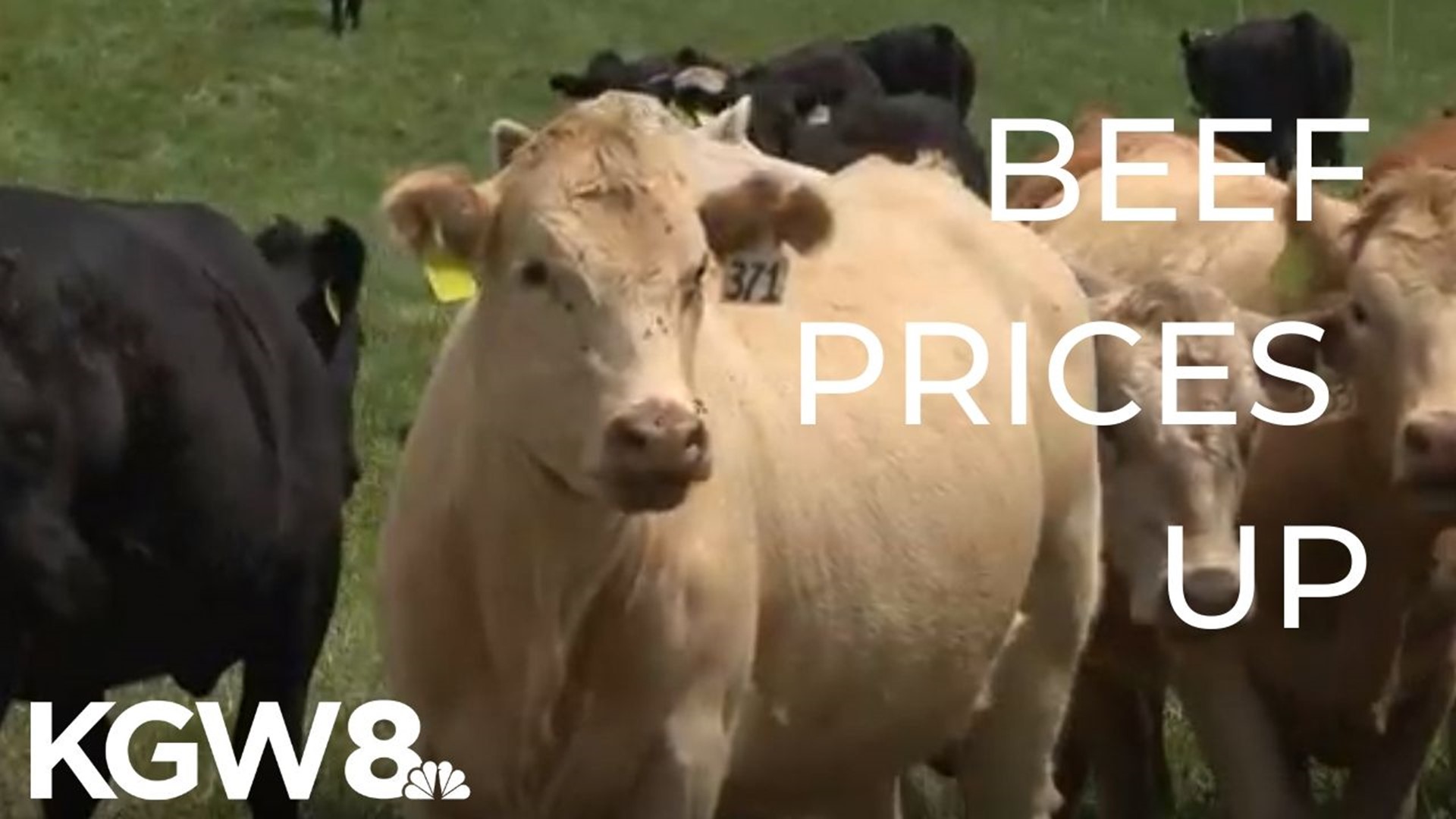PORTLAND, Ore. — Oregon's cattle industry contributes hundreds of millions of dollars to the state’s economy, but right now it is feeling the effects of the COVID-19 pandemic.
Processing plants are running at a limited capacity or have been shut down altogether, and it is impacting the price of beef in grocery stores.
“It's rotated with nursery crops for the number one commodity in the state for the last five years, we've alternated back and forth,” explained Todd Nash, president-elect of the Oregon Cattlemen’s Association. “Cattle are a huge part of the agriculture economy in Oregon. They're the number one commodity in the United States.”
A study released this month estimates the COVID-19 pandemic will cost the cattle industry $13.6 billion.
Here is what is going on in a nutshell: Ranchers have cattle they sell to processing plants. But, the plants are running at limited capacity or closing completely as workers test positive for COVID-19. So, there is more cattle out there than these processing plants can handle, which means ranchers are not making as much money on their cattle. It also means there is now a limited supply of beef, which makes it more expensive for consumers at the grocery store.
“At some point, if we can't get this straightened out and get this flow going again, we are going to see a shortage of some of our proteins in the store,” Nash said.
Nash said the problem is creating a backup of cattle that ranchers expected to sell, but now cannot.
“We're months away from doing something drastic and right now chickens are being euthanized, eggs are destroyed, milk is being dumped, we sure don't want to see cattle lined up at the edge of a pit and destroyed just because we don't have a home for them,” Nash said.
Nash also said this pandemic is just highlighting an issue that has been going on for some time. Because four companies control 80% of the packing facilities in the U.S., he said ranchers continue to get paid less for their cattle, while consumers pay more.
“It's not fair to the retailers, the consumers, or the ranchers,” Nash explained. “There has to be a change. I think there's not enough competition amongst the packers to have true price discovery anymore and it's a system that's broken.”
President Trump is expected to sign an executive order to offset potential meat shortages brought on by the pandemic.

